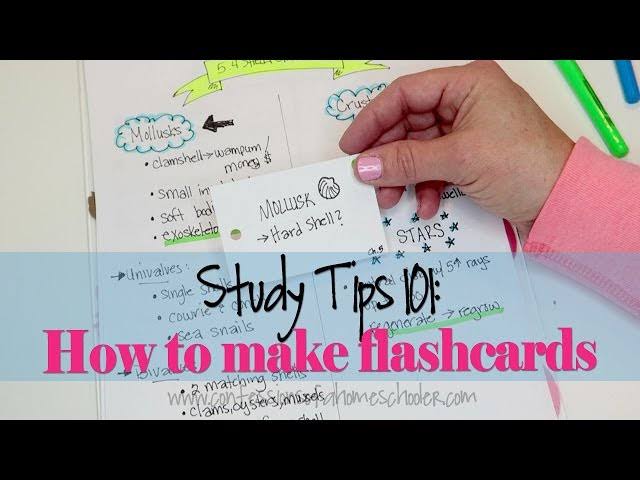Effective Flashcard Tips for Fast Study Sessions: Boost Your Learning Speed
When it comes to studying quickly and efficiently, flashcards are an invaluable tool. They break down complex information into manageable pieces and engage your brain in active recall, which strengthens memory retention. Whether you’re preparing for an exam, learning new vocabulary, or mastering a difficult subject, flashcards can help you study faster while retaining more knowledge. In this article, we’ll share essential flashcard tips that will boost your learning speed and help you get the most out of your study sessions.
Why Flashcards Are Effective for Fast Study
Flashcards are effective because they leverage active recall, a technique that requires you to retrieve information from memory. This strengthens neural pathways and helps you remember the material more easily in the future. Flashcards also take advantage of spaced repetition, a study technique that involves reviewing information at increasing intervals. This method ensures that you review the material before you forget it, which improves long-term retention and helps you study more efficiently.
Using flashcards not only speeds up the learning process but also makes it more engaging. The format forces you to stay focused and actively participate in your study sessions, making it easier to concentrate and retain information.
How to Create Flashcards for Quick Learning
To maximize your study speed with flashcards, it’s important to create them in a way that optimizes learning. Here are some tips for creating effective flashcards:
- Keep It Simple: Focus on one key fact or concept per card. Overloading a card with too much information will make it harder to recall specific details quickly.
- Use Clear, Direct Prompts: The question or prompt on the front of the flashcard should be concise and easy to understand. Avoid using vague language or multi-part questions.
- Include Visuals: If possible, add images or diagrams to your flashcards. Visuals can help reinforce the material and make it easier to remember, especially for subjects that require memorization of complex processes or terms.
Best Practices for Using Flashcards
Creating effective flashcards is just the first step—how you use them is equally important. To study fast and efficiently with flashcards, follow these best practices:
- Review Regularly: Consistent review is key to improving retention. Try to review your flashcards daily, even if it’s just for a few minutes. Frequent, short study sessions are more effective than cramming.
- Shuffle the Deck: Avoid studying your flashcards in the same order every time. Shuffling forces your brain to actively recall the information, instead of relying on memorizing the sequence of the cards.
- Test Yourself: Don’t just passively flip through the flashcards—actively test yourself. Try to recall the answer before turning over the card. This will strengthen your memory and help you retain the information faster.
Using Flashcards for Different Subjects
Flashcards are versatile and can be adapted to a variety of subjects, from languages to science. Here’s how they can be applied to different fields of study:
- Language Learning: Flashcards are perfect for memorizing vocabulary, verb conjugations, and grammar rules. You can also include audio clips to help with pronunciation, or images to reinforce meaning.
- Science and Medicine: Use flashcards to memorize complex terminology, formulas, and processes. Visual aids such as diagrams can be particularly useful for subjects like biology or chemistry.
- History and Social Studies: Flashcards can help you remember important dates, events, and figures. Make sure to include explanations or context on the back of the card to deepen your understanding.
Digital Flashcards: Anki App
While traditional paper flashcards are effective, digital flashcards can make the study process even faster and more efficient. The Anki App is one of the most popular tools for creating and studying flashcards, offering features like spaced repetition and progress tracking to help you study more effectively.
Anki’s spaced repetition algorithm ensures that you review flashcards at optimal intervals, focusing more on the cards you find difficult and less on the ones you already know. This saves time by allowing you to concentrate on the material that needs the most attention. Additionally, Anki allows users to create multimedia flashcards, adding images, audio, and video to enhance the learning experience.
Using the Anki App also means you can study on the go. With your flashcards available on mobile devices, you can fit in quick study sessions whenever you have free time—whether you’re commuting, waiting in line, or taking a short break.
Flashcard Study Tips for Maximum Efficiency
To get the most out of your flashcards and study faster, here are some additional tips to keep in mind:
- Start with New Cards: Begin each study session by reviewing the cards you’ve added recently. This helps reinforce new material before moving on to older content.
- Break Up Your Sessions: Instead of studying for long periods, break your sessions into shorter chunks. Study for 20-30 minutes, take a short break, and then continue. This prevents burnout and helps maintain focus.
- Mix in Old and New Cards: Combine newly created flashcards with older ones. This ensures that you’re continuously reinforcing previously learned material while adding fresh content to your memory bank.
Conclusion
Flashcards are one of the best tools for studying quickly and efficiently, helping you retain more information in less time. Whether you’re using traditional flashcards or a digital tool like the Anki App, the key to success is consistency and effective use of active recall and spaced repetition. By creating clear, simple flashcards and following best practices, you can boost your learning speed and improve your academic performance. With the right strategies in place, flashcards will become an essential part of your study routine, making learning fast, fun, and effective.
